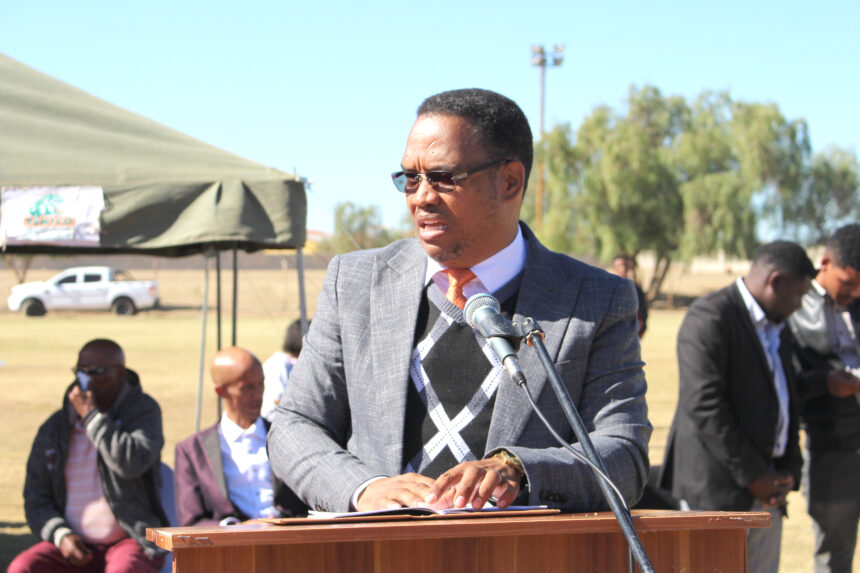KEETMANSHOOP – Landless People’s Movement leader Bernadus Swartbooi has expressed concern over the low number of eligible voters who have registered so far in the //Kharas region.
He raised these concerns in an interview with Nampa here on Saturday during the belated independence celebration for the Keetmanshoop Urban constituency.
“Generally, voter apathy is a challenge, and our voter turnout has been around 60% and 70%, which was fair, but we are concerned that this year seems to be very low. We urge young people and other voters to really go out in the final days and register. People must go register and vote, and not just sit and complain,” he stressed.
The registration process started on 3 June, and ends on 1 August 2024.
Statistics provided by the Electoral Commission of Namibia (ECN) on Friday indicate that about 41 861 people registered in //Kharas between 3 June and 13 July 2024.
The region has about 70 672 eligible voters.
Swartbooi said ECN should consider extending the registration period by one or two weeks to ensure that more people get the opportunity to register.
“If the numbers are sufficient, let us say we have 60% voter registration turnout, then we think ECN must prolong the period, and I think it’s important that we allow as much time as possible for people to register. We will also write to the ECN to ask why they are not registering prisoners because it’s a concern. Why are they discriminating against prison? It’s a major problem, and we’ve got to deal with it,” he said.
He said the central government should stop behaving as if it is the “epicentre government”, adding that the State has three spheres of government – central, regional and local.
“The central government keeps on taking more and more power and authority. But worse, it keeps on taking more and more resources from society. Therefore, the central government has over the past 34 years successfully transformed itself into the epicentre of corruption, nepotism and mismanagement,” he said.
Swartbooi added: “The central government behaves as though society lives only in its proximity, and any resources given to the regional and local authorities, it treats like it’s a favour being given to those structures of government”.
-Nampa



